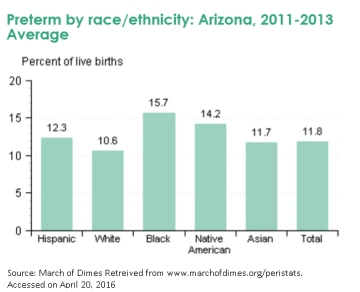What’s a Doula? A Professional Who Lowers Birth Costs and Improves Outcomes, that’s Who.
Over the last few years, there has been more and more focus on the triple aim – improving patient experience, reducing costs, and improving population health.


Doulas are increasingly being recognized as a professional that can do just that.
A doula is a trained professional who provides physical, emotional, and informational support to a woman throughout her pregnancy, childbirth, and postpartum period. Doulas act as a facilitator between the laboring women and her physician by ensuring that the mother gets the required information to make informed decisions. Having a doula is like having a friend who has gone through the labor and delivery process several times with multiple women and hence is experienced.
Here at the Center for Population Science and Discovery, we’re all about improving outcomes while reducing costs. So when we see the kinds of opportunities that doula services provide, we can’t help but tell the world. Some states and insurance plans have begun to reimburse doulas for their services precisely because they reduce costs and improve outcomes. Data increasingly suggest that this is a smart idea.

So, we’ve got better outcomes covered, what about lower costs?
Recent evidence on the return on investment for doulas is encouraging. In addition to improving birth outcomes, doula coverage can also be cost effective (if not cost saving) to Medicaid programs. Doula coverage can help reduce costs by lowering the rate of pre-term and cesarean deliveries. One study conducted across 10 states computed an average savings of $986 per doula supported birth.
Despite the evidence on doula-supported births, only 6% of U.S. women who give birth are estimated to have doula support. Low income women and women of color, who are the most likely groups to want doula services, may not be able to afford doula services, which can cost $500 to $750 per birth in Arizona. Because few health plans currently reimburse for doula services, most women are unable to take advantage of the improved outcomes and enhanced birth experience that doulas provide.
Licensed and culturally trained doulas who are from the minority communities can not only provide emotional support during the prenatal period and the delivery process, but can also help facilitate key communication between the mother and her care providers.
The question is, what are we waiting for? Doulas have proven to be effective in improving birth outcomes cost effectively in other states in the U.S. It’s time Arizonans start looking into how doula services can be efficiently reimbursed for the mothers in our state.
Need more details? Access our issue brief on Doula Coverage to Help Minimize Arizona’s Birth Woes.
About the Author
Prashanthinie (Prashi) Mohan, MBA, is a Doctorate in Public Health (DrPH) student at the University of Arizona Mel & Enid Zuckerman College of Public Health (MEZCOPH) in the Public Health Policy and Management Program.
She has more than seven years of consulting and process improvement experience in the healthcare industry - working with multiple healthcare systems on revenue cycle management, business intelligence, health care information technology, and workforce optimization. Ms. Mohan strives to extend her healthcare management expertise to public health, specifically in the areas of population health, cost-effective analysis, and policy advocacy. Her goal is to actively drive community collaboration to implement cost-effective, evidence-based health interventions.

